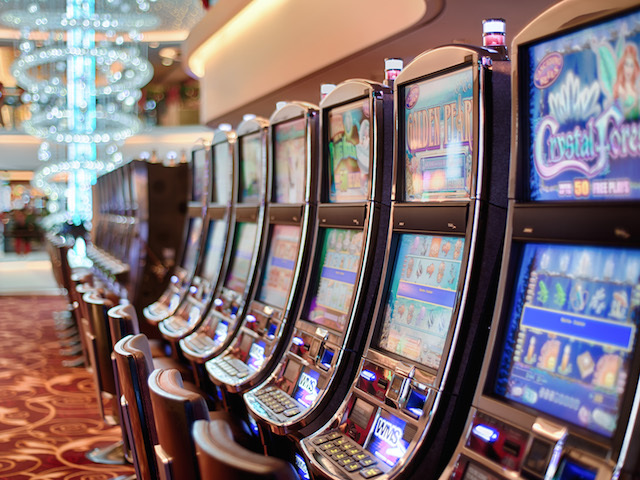Anyone who has played professionally has heard the term heat or heard a casino described as sweaty. Although those terms are related, there’s a big difference between getting heat and getting sweat from a casino, and it’s important to be able to recognize which is which.
Heat: The casino is not happy, they don’t like what’s going down, and there’s a good chance you will be backed off or 86’ed soon. Common signs include phone conversations about you, multiple suits coming in and out of the pit and taking an obvious interest in you, and repeated requests for a players card after you have already declined.
You may even experience a pit boss standing behind you, trying to see what you’re doing, or rifling through the discards. Worse yet, you might see a pit boss standing on the floor outside of the pit, waiting for security to arrive so they can walk you out. I once had a pit boss sit next to me at a table right before a hand was dealt, to see if I was doing what he thought I might be doing. That was definitely heat.
Sweat: The casino may not be happy, but it’s just because they don’t like your action for what could be a number of reasons. They probably don’t know the play (at least not right away, unless you’re straight counting) and they probably aren’t going to take any action against you without further investigation (which may or may not occur).
Pit personnel in sweaty casinos act like they know you’re up to something—whether or not they actually do—when you hit a certain betting level or win threshold, or even just because you fit the AP profile. Casinos that sweat are generally the lower end places: in Las Vegas, think Jerry’s Nugget, Cannery, Hooters, etc. Go into one of these places and start betting $500 unrated, and you will likely see some sweat.
I call this procedural sweat. The casino goes through these same motions for any unknown player betting what they see as big money.
So how do you determine which one you’re getting? Unfortunately, there’s no cut and dry answer; a lot of it comes from experience. There are, however, a few things to consider that might help you figure it out:
What is the tolerance level and attitude of the place you are playing?
If I flat bet $300 on blackjack at a high end casino that has similar action all over the floor, I don’t expect much attention at all. So if I suddenly start getting a lot of obvious attention, it’s likely heat. If I take that same action to a casino that mostly gets low roller action, they are likely going to immediately act like something big is going down and run all over the pit making phone calls, asking for a players card, and so on. Here, I would attribute this to standard casino sweat.
Have you played at this casino before?
If yes, is this an attitude change for the casino? Did they used to be happy to see you but are suddenly giving you the cold shoulder or acting as if the roof is on fire? This is likely heat.
If no, and you have reason to believe that your face and/or name are clean at this place, then this is likely procedural sweat.
Did the casino’s attitude noticeably change hours into the session, or has it remained constant?
If it changed, this could be heat, or it could be due to other factors, like win amount or buy in amount. These, of course, are not mutually exclusive.
If it remained constant, then the casino is likely just sweating you. it is their procedure to sweat, and they won’t stop until you leave. If you’ve already played for a couple of hours and nothing has changed, you’re probably OK to continue.
Have you had any backoff or 86ing incidents recently (or ever) in the same region?
If you’ve had recent trouble, then any negative attention given right away is likely heat and the result of a flyer from the offending casino. In some regions, the only way to avoid further issues is to just leave town because you are done everywhere (unless you’re good at very drastic look changes).
If you’ve had trouble in the area but not recently, then it’s of course harder to tell. I would generally play through it unless I saw signs of obvious heat.
If you haven’t had any trouble recently, then any attention that occurs right away—assuming you are not using a dirty name and are not a notorious/recognizable player—is likely sweat.
That last point is an entire issue altogether. If your name and/or face are well known by casino personnel, things can be a lot trickier. I will save that discussion for another post.




April 15, 2017 @ 10:21 am
My last barring came out of nowhere. No scrutiny from anywhere. Was basically min betting a carnival game and actually asked to have the limit LOWERED for other players (ploppies) to join. Then a YEAR and a HALF later, the bastards sent the state police to my house questioning me about collusion. They even agreed with me that they couldn’t see what I was being accused of. Never trust these F’ing casinos.
April 17, 2017 @ 11:54 am
Amen, brother.
April 19, 2017 @ 8:52 pm
Some barrings and back-offs are the result of nothing other than thorough incompetence of casino employees. Obviously, not all casino employees are incompetent, but many are, especially at the lower tier stores. This is largely an artifact of a casino reward/promotion system that encourages action on the part of bosses. A boss who backs off counters/shuffle trackers/hole carders may be acting on nothing more than hunches, but he is rewarded for taking action, however ill-informed. Nothing in many casinos’ tracking systems requires or evaluates the accuracy of a boss’ determination. For example, I was 86’d from one casino having been completely mistaken for someone else who had evidently been 86’d years earlier. There is little one can do about most casino employee incompetence except roll with the punches. One can be philosophical about this too: We take considerable advantage of that incompetence when it occurs in our favor.
April 26, 2017 @ 10:02 am
The last part is crucial. I hear a lot of complaining with regard to the incompetence of casino staff in these situations. A friend’s partner was 86’ed a few days ago along with a completely unknown gambler that apparently just got caught in the crossfire. That’s too bad for the gambler, of course, but the inability to effectively pick off plays and deal with APs in an appropriate manner is a major source of value for us. If you can identify these inefficiencies, you can use them to your advantage.